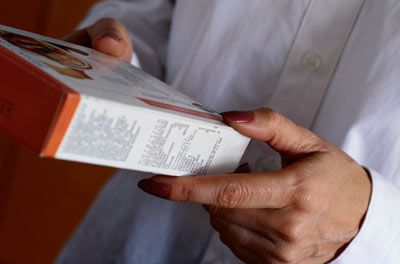In the fight against obesity, suggestions to increase nutrition education, remove soft drinks from schools, change how companies can advertise, ban trans fats and subsidize healthy foods are all common. But there's one potential tool you may not have heard of, though it's been discussed for more than a decade. A June 2007 study suggests that a "fat tax" -- placing a tax on fatty or unhealthy foods -- might save thousands of lives and reduce health care costs.
Also called the Twinkie tax, the fat tax concept was pioneered by Kelly D. Brownell, a professor of psychology at Yale University, who wrote about it in the New York Times in 1994. Dr. Brownell outlined two proposals, the first of which suggested a 7 percent to 10 percent tax on unhealthy foods. The tax revenue would then subsidize the sale of healthy foods. The tax would apply to broad types of foods or target certain fatty foods. Brownell's alternate proposal stated that a lesser tax could be used to fund public programs promoting healthy and responsible eating.
Advertisement
Researchers at Oxford University and Nottingham University claim that a 17.5 percent Value Added Tax (VAT) on unhealthy food could save up to 3,200 lives a year. The tax would effectively save lives by reducing demands for unhealthy foods, consequently reducing occurrences of serious complications from obesity, such as heart attacks and diabetes.
In determining how demand would be lowered, the researchers calculated how higher prices on unhealthy foods would affect the market for those products. The scientists created scenarios involving three different potential methods of taxation. The first model taxed only foods loaded with saturated fat. But this taxation method simply caused consumers to switch to other salty, unhealthy foods, which resulted in even more severe health consequences. It also increased food costs for the average family by 3.2 percent [Source: Guardian Unlimited].
The second taxation scheme assigned various foods a rating, called an SSCg3d score. Researchers rated foods based on their levels of eight nutrients. Very healthy foods had negative scores, while unhealthy foods had positive scores. Foods with scores more than +8 would be taxed, resulting in an estimated 2,300 lives saved but a 4 percent increase in food costs [Source: Guardian Unlimited].
The third method outlined by the researchers spread the tax among a wide variety of foods, potentially taxing 44.5 percent of all food costs. This tax saved an estimated 3,200 lives but raised food expenditures by 4.6 percent [Source: Reuters].
Besides encouraging consumers to purchase healthier foods, one researcher said -- as Dr. Brownell once suggested -- that the VAT could be used to subsidize the cost of more expensive, healthy foods. Some foods in Britain, such as ice cream and potato chips, are already subject to a VAT. In the United States, several states levy small taxes on soft drinks. California, Maine and Maryland all had fat taxes that were later repealed. A fat tax could be as small as one cent for a soda, but given the United States' fast food consumption, even a miniscule tax could generate hundreds of millions of dollars.
The researchers claim a fat tax would save thousands of lives, but is a tax the right way to fight obesity? On the next page, we'll look at some arguments for and against a fat tax.
Advertisement



